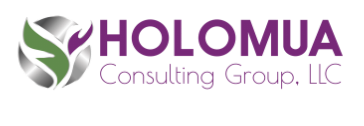| | The DBE program assists small businesses with gaining access to Federally funded transportation contracts. It is another great small business program that seeks to ensure small businesses are able to succeed in government contracting. Your business must meet a number of eligibility requirements to qualify for the DBE program. Here’s a breakdown of these requirements: |
2.Majority owned by a socially and economically U.S. Citizen (“disadvantaged individual”) – Your business must be at least 51% owned by a disadvantaged individual or individuals. Let’s look further at the definition of disadvantaged individual.
Socially Disadvantaged – To be disadvantaged, an individual must be socially disadvantaged. There are specific groups that are presumed to be socially disadvantaged. A few of these groups include “women, Black Americans, Hispanic Americans, Native Americans, Asian-Pacific Americans, Subcontinent Asian-Pacific Americans, and other minorities.” As a note, the DBE program recognizes SBA’s definition of socially disadvantaged. If an individual is not a member of one of these presumed groups, they may still participate in the program. However, he or she must demonstrate social disadvantage and decisions are made on a case-by-case basis.
Economically Disadvantaged – To be disadvantaged, an individual must also be economically disadvantaged. By definition, an economically disadvantaged individual is a person who is socially disadvantaged. Additionally, this individual’s personal net worth cannot be more than $1.32 million (i.e. assets minus liabilities). In calculating your net worth, your equity in the applicant business as well as the equity in your primary residence will not be counted.
3.Controlled by a disadvantaged individual – Finally, your business must be controlled by a disadvantaged individual. Ownership and control are two different factors. Merely having 51% or more ownership in a company does not equate to control. Control is having the power to direct the management and policies of the company. The individual(s) who has control must also have the understanding and experience required to successfully operate the firm. If your business is connected to another (i.e. financially or contractually), which leads to concerns about control and independence, your company may have issues with qualifying for the DBE program.
While the requirements and application process is uniform, each state is responsible for obtaining and reviewing DBE program applications. As such, it is up to the applicant to ensure he/she understands all of the requirements and provides sufficient information and documents to demonstrate eligibility. To get the full regulations and requirements for the DBE program, visit the Department of Transportation’s regulations at 49 CFR Part 26.
Contact us at (808) 369-9710 to learn more about the DBE program, its benefits, and how we can assist you with becoming a DBE certified company.




